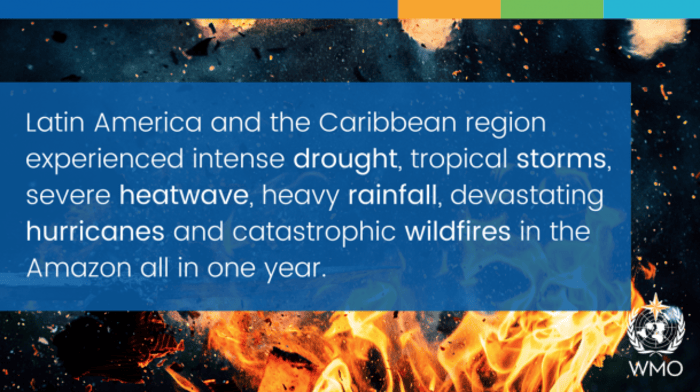The World Meteorological Organization’s report, “State of the Climate in Latin America and the Caribbean 2020,” outlines the severe impacts of climate change in the region, threatening health, food, water, and energy security. Key concerns include forest fires and forest loss, crucial for carbon sequestration.
The report highlights increasing temperatures, changing precipitation patterns, and severe weather events affecting marine life and coastal communities, particularly in Small Island Developing States. It notes significant droughts and destructive hurricanes, exacerbating food insecurity and health risks related to the COVID-19 pandemic.
Between 1998 and 2020, climate-related disasters resulted in over 312,000 deaths and affected 277 million people. The report emphasizes the need for accurate data and improved early warning systems and climate adaptation measures, noting that 2020 was among the warmest years recorded in the region.
Additionally, wildfires are on the rise, particularly in the Amazon, which faces threats from deforestation. Coastal regions confront increasing vulnerability due to rising sea levels and ocean acidification, which jeopardizes marine ecosystems.
The report calls for greater political commitment to enhance disaster risk management and highlights the potential of mangroves and other ecosystems for climate resilience.
Source link


